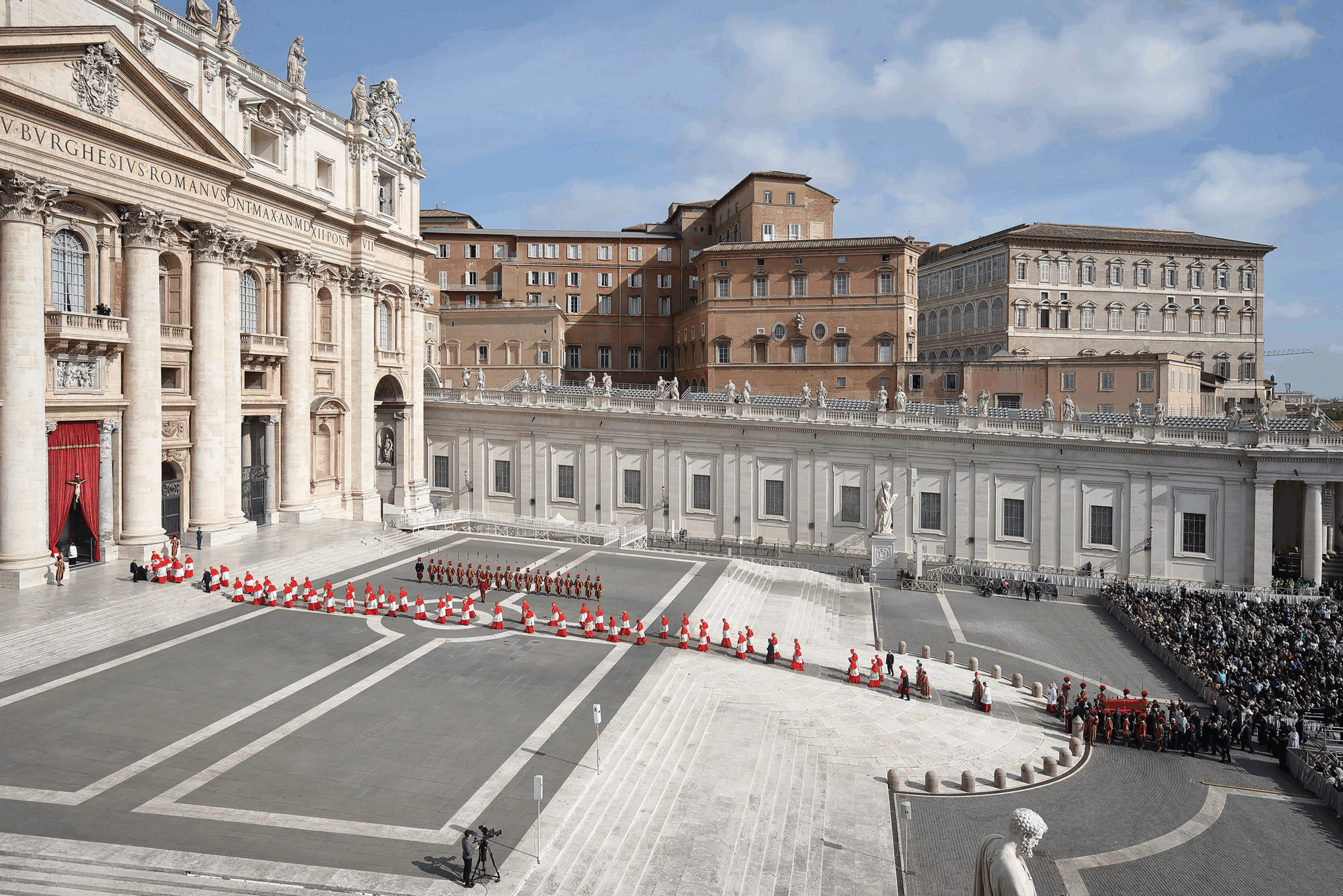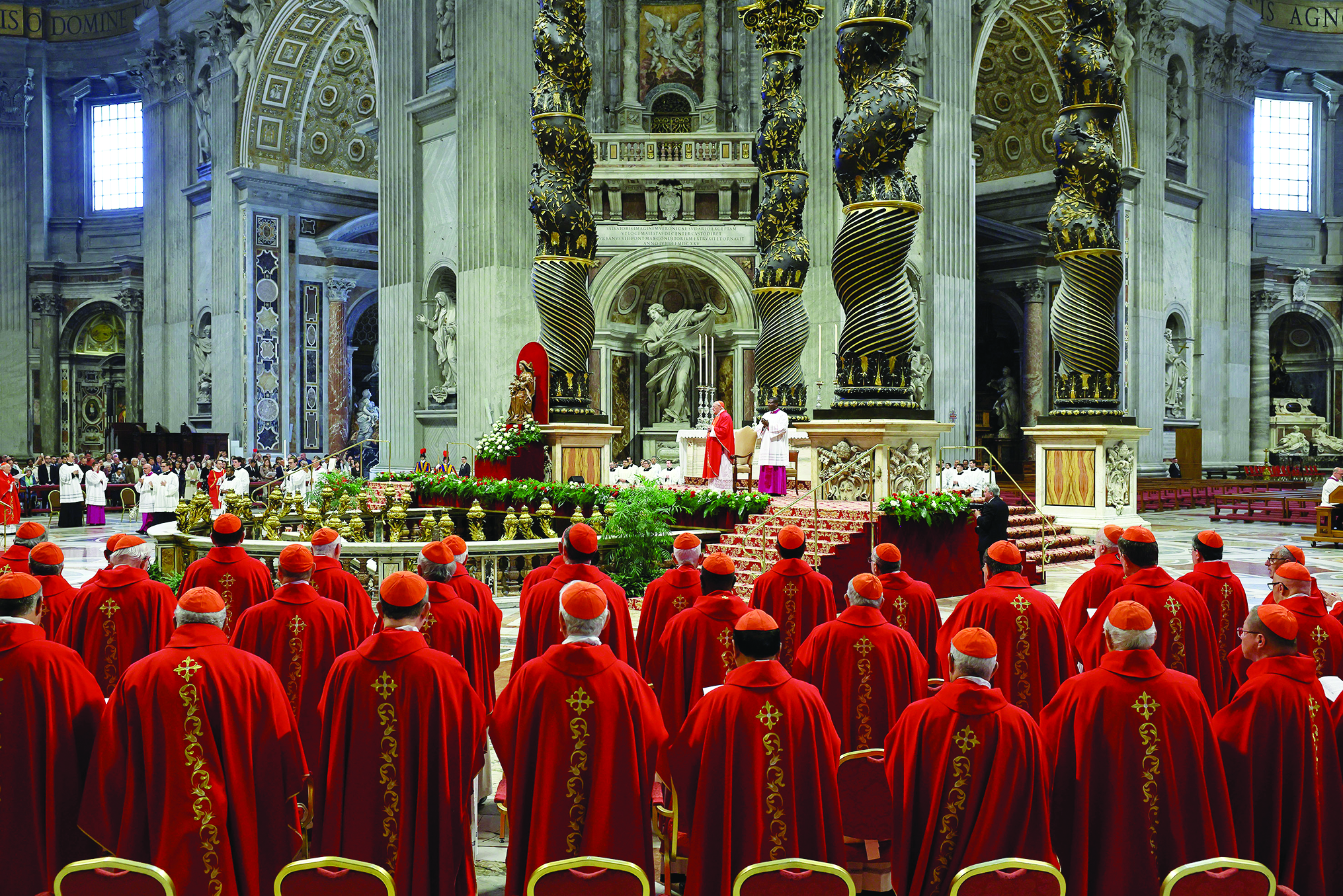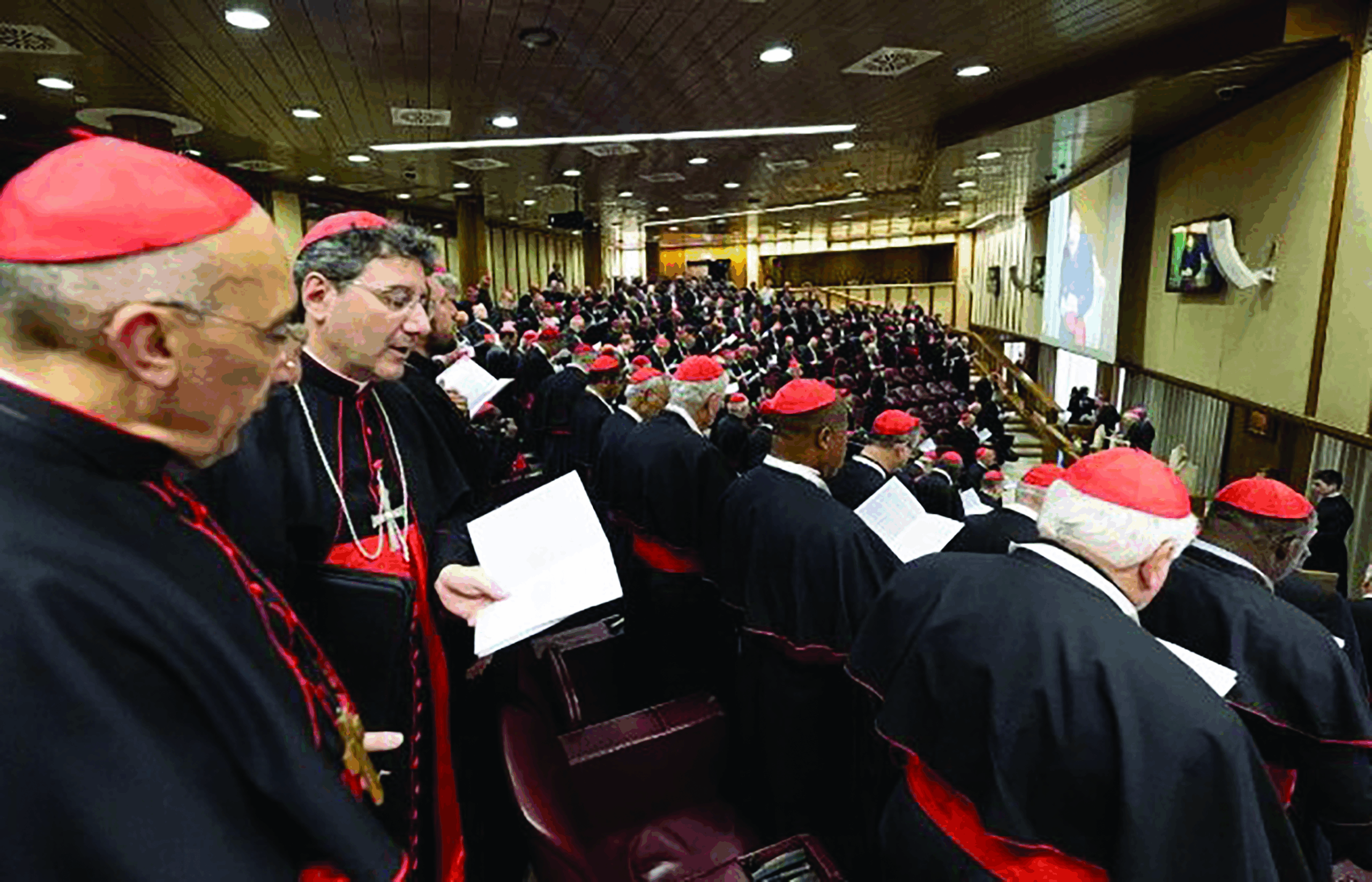By Lucy Gordan
Introduction by ITV staff

Here, Italian tenor Andrea Bocelli (who is blind), with the head of his Andrea Bocelli Foundation, Laura Biancalani, at the recent inauguration of the foundation’s new Maria Manetti Shrem Educational Center in Florence, Italy. Photos courtesy of The Andrea Bocelli Foundation. Photo credit: Giacomo Moresi, 2024.

For Andrea Bocelli, 65, whose powerful, melodious tenor voice has made him one of Italy’s most beloved singers, the Christian faith is at the heart of who he is as a person and a performer — and as a philanthropist.
Bocelli has described his faith as a “priceless gift,” which he said helps drive the selection of his musical repertoire and his charitable outreach. “Whoever has this same gift improves their own life and the world around them,” he once said. “I believe that having faith means believing in the power of good, and at every crossroad choosing the road that leads to it.”
Music itself is a potential expression of the sacred and of faith in the transcendent, Bocelli said.
Bocelli was not always so devoted to his faith. Although he found inspiration as a child worshipping in a small Catholic church in the Tuscan village where he was born and raised, he became agnostic as a teen — a decision he attributed to the “arrogance of youth.”
“Later, however, at the first fundamental turning point in my adult life (that is, the moment I decided to believe or not to believe, because there clearly isn’t a third option), I chose the way that seemed the most logical — that my intellect, for however limited, saw as the path to follow without alternatives,” he said. “My work as a musician, like that of a philanthropist that I carry out through the Andrea Bocelli Foundation, reflects this choice, a choice that is old as it is fundamental, which I could sum up as the will to pay homage to beauty and saying ‘yes’ to all that is good.”
Bocelli was born with congenital glaucoma. When a soccer ball struck him in the head at age 12, he lost all vision completely. Fourteen years ago, Bocelli appeared in a YouTube video outlining his thankfulness to his mother for choosing life. Seated at a piano, he recalled how his mother’s doctor suggested an abortion in anticipation of her son’s disability. “But the young brave wife decided not to abort, and the child was born,” Bocelli said in the video.
“That woman was my mother, and I was the child. Maybe I’m partisan, but I can say that it was the right choice.” He added that he hoped sharing the story would encourage “many mothers who sometimes find themselves in difficult situations,” but who want to “save the life of their baby.”
Although he is a busy virtuoso opera singer who tours the world and has sold more than 90 million records, Bocelli makes time for solitude and silence. “Silence, I believe, hides true treasures, because it leads to reflection, while it is also an essential space in which to collect one’s thoughts in prayer,” he said. “Whenever I can, I try to escape the clamor and confusion of cities and go to the country and nature that are a haven for the spirit, ideal for finding the right dimension for reflection.” Singing for three Popes — St. John Paul II, Pope Benedict XVI and Pope Francis — were among the most emotional moments in Bocelli’s career, he said. The 65-year-old singer described St. John Paul as “magnetic,” Pope Benedict as “pure intellect,” and Pope Francis as “a man of few words but of great deeds.” He was especially moved when St. John Paul placed his hand on his shoulder “like a father.”
The performer, who has sung with his son, Matteo, and his daughter, Virginia, said good music contributes to spiritual growth. His charitable foundation promotes music and artistic education for children, in addition to promoting humanitarian outreach around the world to deal with poverty, illness and complex social issues. “Being a philanthropist, taking care of people… does not simply mean being generous and it is not only a moral duty. It’s an act of intelligence, a path that all of us ─ each as much as we can ─ should perceive as the only path to follow.”
—From a February 19 article in the Detroit Catholic by George P. Matysek Jr., managing editor of the Catholic Review, the news outlet of the Archdiocese of Baltimore.

Andrea Bocelli, with his wife Veronica Berti (right) and (left) philanthropist Maria Manetti Shrem outside the new Shrem Educational Center in Florence during its inauguration
Andrea Bocelli and Laura Biancalani, the CEO of The Andrea Bocelli Foundation, are from the same hometown, Lajatico, about 25 miles south of Pisa. Born on September 22, 1958, Bocelli grew up on his family farm where they sold farm machinery and made wine.
“In 1994, shortly after he’d won the San Remo Song Festival in the ‘new voices’ category for his song ‘Il mare calma della sera’,” Biancalani wrote me, “I knocked on Andrea’s front door to ask him to organize a concert to benefit the local hospice for the terminally ill with HIV. Impressed that only at age 18 I was dedicated at helping others, he agreed and we’ve been close friends ever since. That concert was Andrea’s first philanthropic experience.”
Together with Biancalani, Bocelli’s first major international philanthropic collaboration took place in January 2010 after a disastrous earthquake in Haiti which killed thousands and destroyed most infrastructures. He, his manager Veronica Berti, whom he met in 2002 and married in 2014, and Biancalani worked with Father Rick Frechette, the founder of St. Luc Fondation there, whom they’d met a few months before at a New York concert and with whom they still collaborate. Over the next decade, until 2019’s civil war, the Bocellis and an ABF team traveled to Haiti at least 4 times a year to support and participate in humanitarian projects.
Founded in 2011, The Andrea Bocelli Foundation (ABF), headquartered in Florence, was inspired by Florence’s three-term Christian-Democrat mayor Giorgio La Pira’s fervent charitable interventions and the Bocellis’ first hands-on Haitian experience the year before. Since then, it’s funded humanitarian, educational and/or medical projects in Italy, England (music scholarships), Greece, Iraq, Syria (schools in refugee camps in all three countries), The United States (music scholarships), The Holy Land (vocational guidance), Ukraine (basic medical and financial aid for people who’ve had to abandon their homes), and Vatican City, where it built the showers for the homeless in St. Peter’s colonnade, to name just a selection. “Our vision,” explained Laura Biancalani, “has always been global. Our main, but not exclusive, mission is to create projects for poor communities with high illiteracy. For examples, over the years, the Foundation has raised over 60 million euros to construct schools in Haiti and in Italy. These schools still provide quality education to over 20,000 students every day.
In Italy during 2020, in co-operation with the Italian Pediatric Hospitals Association (AOPI), The Foundation launched a program to support educational and artistic activities for the over 60,000 hospitalized students in Italy who attended schools in specialized facilities or at home thanks to the Ministry of Education’s Home Education service. This number rises to 1 million when it includes children with chronic illnesses. In 2022 over 17,000 children benefitted while hospitalized in eight Italian hospitals.

Bocelli and his wife with Eugenio Giani, president of Tuscany, and Sara Funaro, the Deputy Mayor of Florence
Based on the success of the program, on March 21, the foundation inaugurated its latest project, The Maria Manetti Shrem Educational Center at the Meyer Children’s Hospital in Florence. Named for a Florentine-Californian opera-lover, art collector, benefactor, and The Foundation’s ambassadress since 2017, it’s the world’s first school building on a hospital’s grounds. Designed by the Rome-based international architectural firm Alvisi Kirimoto, the white-walled Center is surrounded by green lawns and includes a patio with tables, an area for patients to grow plants and vegetables, and a playroom. Large windows brighten its large irregularly-shaped classrooms and laboratories. Its furniture is colorful and cheerful.
“Attempting to describe what one experiences in places like… the Meyer hospital,” said Andrea Bocelli, who was hospitalized frequently, although never at The Meyer, as a child for congenital glaucoma, at the Center’s inauguration, “is futile because the joys and sorrows experienced here cannot be expressed in words. Here one experiences a season of time, and time in life is short. We must optimize it and succeed in giving a profound meaning to the time spent in hospital… When here, children feel the need not to fall behind their peers and even study more willingly than those not-hospitalized who have the opportunity to run and play soccer. The world is propelled forward by those who work and do, not by those who merely talk. Therefore, I would like to speak little and simply express my endless gratitude to everyone and sincerely wish them the best in the work they do.”






Facebook Comments